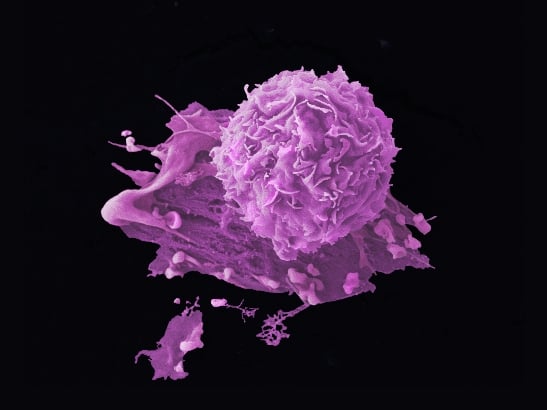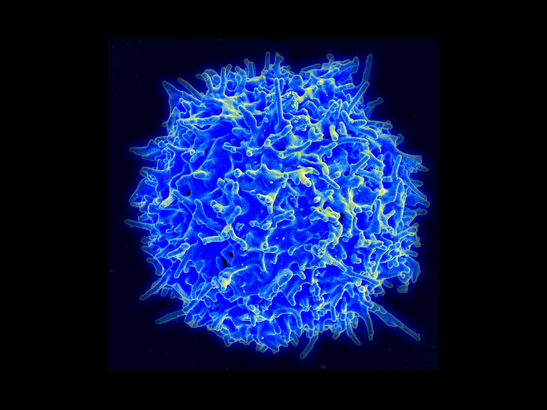News and features
Read the latest news and features about our world-leading research, discoveries, fundraising and philanthropy. If you want to keep updated on our news, you can follow us on social media or sign up for our Search newsletter.
If you’re a journalist and want to find out more, you can contact our media relations team.

Ride announced in memory of Hairy Biker Dave Myers to support The Institute of Cancer Research
The Institute of Cancer Research, London, is honoured to be a beneficiary of a motorbike ride in tribute to Dave Myers of the Hairy Bikers. The ride will take place on Saturday 8 June 2024.

Scientists find new ways to convert inhibitors into degraders, paving the way for future drug discoveries
Researchers have discovered ways to convert inhibitor-style targeted cancer drugs into small molecules known as degraders, which help destroy cancer-promoting proteins in cells.

Groundbreaking methodological advance will support the design of innovative new cancer drugs
Scientists have successfully used a new imaging technique to determine the structure and interactions of a protein complex that plays a significant part in the initiation and progression of cancer.

Research uncovers how to target ‘sleeping’ breast cancer cells and prevent relapse
Scientists have discovered how breast cancer cells can ‘hibernate’ to avoid treatment and ‘wake up’ years later – causing a relapse that is more difficult to treat.

Cancer charity founder and cancer genetics pioneer honoured at ICR graduation ceremony
The ICR honoured the founder of CRIS Cancer Foundation, Lola Manterola, and cancer genetics researcher, Professor Sir Bruce Ponder, with honorary degrees at their annual graduation and awards ceremony.

Lynch syndrome: First national NHS patient database of genetic condition aims to prevent cancer
A new database of all patients with Lynch syndrome aims to improve treatment and prevention for those at high-risk of cancer.

New technique opens up study of immune response to cancer by releasing precious material locked in old archive cancer samples
Scientists have developed an improved technique for reading the genetic material associated with the body’s immune response to cancer, making it possible to study tissue samples that have been stored in archives for decades.

ICR scientists seek new drugs to treat childhood cancer as part of global Cancer Grand Challenges team
A global, interdisciplinary team of researchers has been selected to receive a Cancer Grand Challenges award of up to $25m over five years to tackle the challenge of solid tumours in children.

Artificial Intelligence reveals prostate cancer is not just one disease
Artificial Intelligence has helped scientists reveal a new form of aggressive prostate cancer which could revolutionise how the disease is diagnosed and treated in the future.
.jpg?sfvrsn=b8be1e0b_2)
Targeted immunotherapy could lead to pioneering treatment for breast cancer
A new type of immunotherapy that targets non-cancer cells could help prevent the growth and spread of breast cancer tumours, according to new research from the ICR.

New drug could unlock benefits of immunotherapy for more patients
A new drug could offer a powerful way to sensitise tumours to immunotherapy, a new trial suggests.

Her Majesty The Queen presents cancer researchers with prize at Buckingham Palace
Earlier today, researchers from The Institute of Cancer Research, London, received a prestigious Queen’s Anniversary Prize on behalf of the institute, in recognition of its transformational breast cancer research programme.
